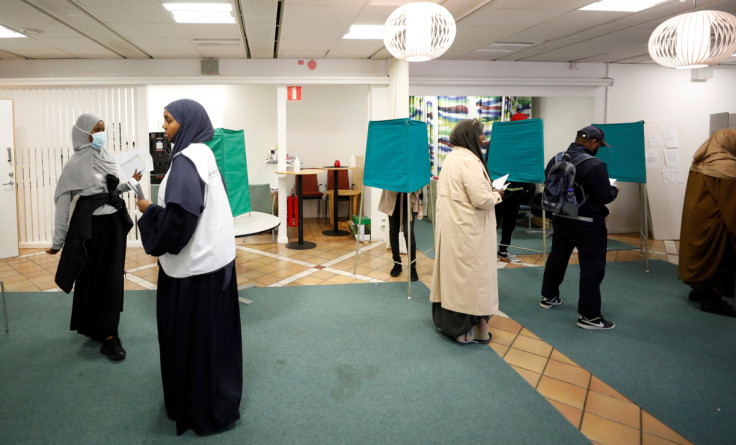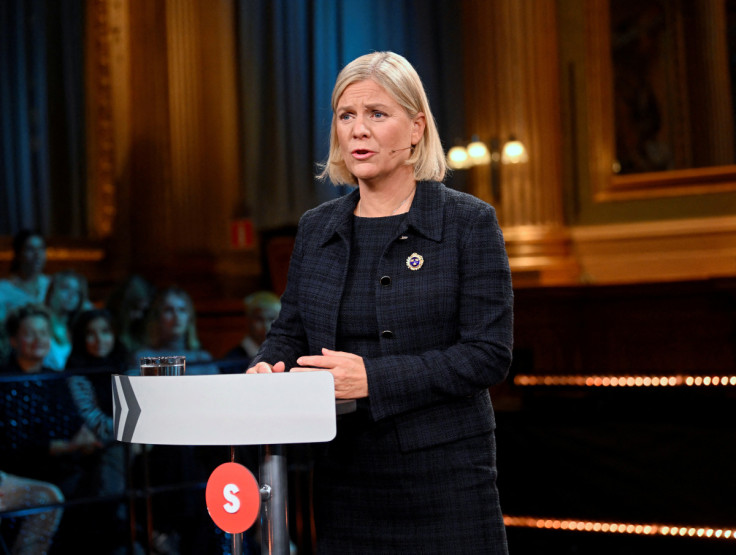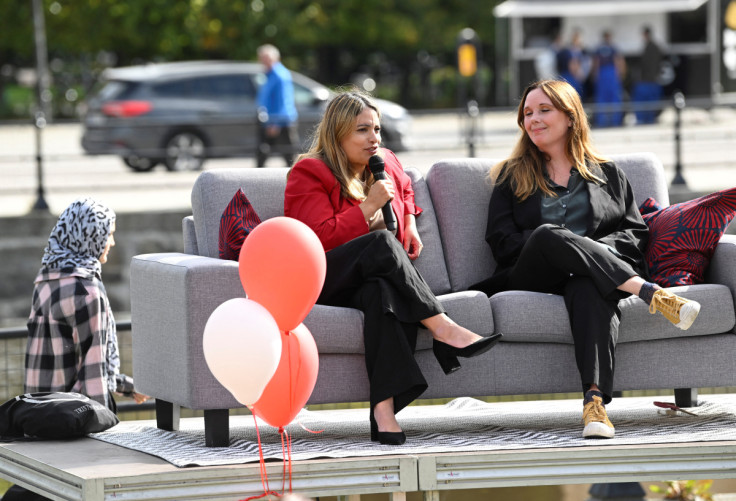Swedes Head To Polls In Close-run Election Marked By Crime, Energy Crisis

Swedes vote on Sunday in an election pitting the incumbent centre-left Social Democrats against a right-wing bloc that has embraced the anti-immigration Sweden Democrats in a bid to win back power after eight years in opposition.
With steadily growing numbers of shootings unnerving voters, campaigning has seen parties battle to be the toughest on gang crime, while surging inflation and the energy crisis in the wake of the invasion of Ukraine have increasingly taken centre stage.
Law and order is home turf for the right, but gathering economic storm clouds as households and companies face sky-high power prices may boost Social Democratic Prime Minister Magdalena Andersson, seen as a safe pair of hands and more popular than her own party. [L8N30D1RY]
"My clear message is: during the pandemic we supported Swedish companies and households. I will act in the exact same way again if I get your renewed confidence," she said this week in one of the final debates ahead of the vote.
Andersson was finance minister for many years before becoming Sweden's first female prime minister a year ago. Her main rival is Moderates' leader Ulf Kristersson, who sees himself as the only one who can unite the right and unseat her.
Kristersson has spent years deepening ties with the Sweden Democrats, an anti-immigration party with white supremacists among its founders. Initially shunned by all the other parties, the Sweden Democrats are now increasingly part of the mainstream right.
"We will prioritize law and order, making it profitable to work and build new climate-smart nuclear power," Kristersson said in a video posted by his party. "Simply put, we want to sort Sweden out."
Opinion polls show the centre-left running neck-and-neck with the right-wing bloc, where the Sweden Democrats look to have recently overtaken the Moderates as the second biggest party behind the Social Democrats.
For many centre-left voters - and even some on the right - the prospect of Jimmie Akesson's Sweden Democrats having a say on government policy or joining the cabinet remains deeply unsettling, and the election is seen in part as a referendum over whether to give them that power.
Kristersson wants to form a government with the small Christian Democrats and, possibly, the Liberals, and only rely on Sweden Democrat support in parliament. But those are assurances the centre-left don't take at face value.
Uncertainty looms large over the election, with both blocs facing long and hard negotiations to form a government in a polarised and emotionally-charged political landscape.
Andersson will need to get support from the Centre Party and the Left, who are ideological opposites, and probably the Green Party as well, if she wants a second term as prime minister.
"I have pretty few red lines," Annie Loof, whose Centre Party split with Kristersson over his embrace of the Sweden Democrats, said in a recent SVT interview.
"One red line I do have is that I will never let through a government that gives the Sweden Democrats influence."


© Copyright Thomson Reuters 2024. All rights reserved.











